Building Inclusivity
Over October 4 – 6, 2022 there will be a conference that “empowers association leaders to face today’s most critical issues.” I will not be attending. And the reason why frustrates me just as much as missing the event.
When I learned the event was being held over Yom Kippur, my excitement about their commitment “to hosting a diverse slate of forward-thinking association executives and speakers” was stifled by an unspoken, glaring caveat. “Not including any Jewish person.”
In the Jewish faith, Yom Kippur is arguably one of the holiest and most observed holidays of the Jewish calendar. Anyone who has some level of observance will not be able to attend this conference in deference to their religion. For a corollary, what if the date was on Eid-al-Fitr? Ashura? Diwali? Easter? Christmas? (the list goes on).
As an association professional, the critical nature of professional development and a robust network of peers is clear. As we emerge from years of isolation, there is a palpable need and desire to come together to learn, reconnect, and strengthen ourselves and our community. Over the past few years, we have seen the priorities of diversity, equity, inclusivity, and access rise to the surface as organizations state vocal and public commitments to these principles. Many organizations who have made these statements are now at a crossroads of what it means to go beyond a public commitment, to action.
Unfortunately, this situation is a glaring and unfortunately, common, example of the statements of an organization not lining up with their actions.
When alerted about this conflict, the organizer shared a message with their community that acknowledged the conflict with two points:
- An oversight as event planners
- A busy event industry calendar that is packed from postponed conferences
This was accompanied by an offer for those unable to physically attend to register for the virtual alternate meeting. What was missing was an apology, a pledge for the future, and there was a missed opportunity for greater community learning.
In truth, prior to 2020, similar occurrences took place regularly and notes sent to the organizing association were usually met with apology and, occasionally, a change in date. Yet, in this moment where our organizations have endeavored to learn and grow since the events of the early 2020’s and many have put out statements professing their attention to diversity and inclusion, the oversight doesn’t feel the same. A colleague of mine this morning said it well:
Intention doesn’t absolve people of the impact of their actions.
Diversity and inclusivity have many definitions. Successful consideration of them does not happen by accident. If your association is planning or hosting a meeting in the near, or far, future. Please take a moment to look at a calendar containing observances and non-Christian holidays before selecting your dates. If you would like to go a step further, you can even surface those dates to educate your membership as FSAE has done. If you do find your organization has scheduled on top of an observance, don’t wait for a member or excluded participant to reach out. Instead:
Acknowledge and Apologize – and make a commitment to the future
Accommodate – if there are special needs for the holiday, provide options for the meal, space, etc. needed to observe the holiday while at the event
Alternative – identify if there are ways for those who cannot attend due to holiday observations to participate in a different way
Consider providing complimentary or dramatically reduced access to recordings
Allow speakers to submit a prerecorded session or webinar on a different date
Move the sessions of affected individuals to different times/dates
I hope we can all learn together on this journey of growth and awareness and all find meaningful opportunities to do better, to be better. We all have so much to offer one another, how are you designing your events to be open to all?
